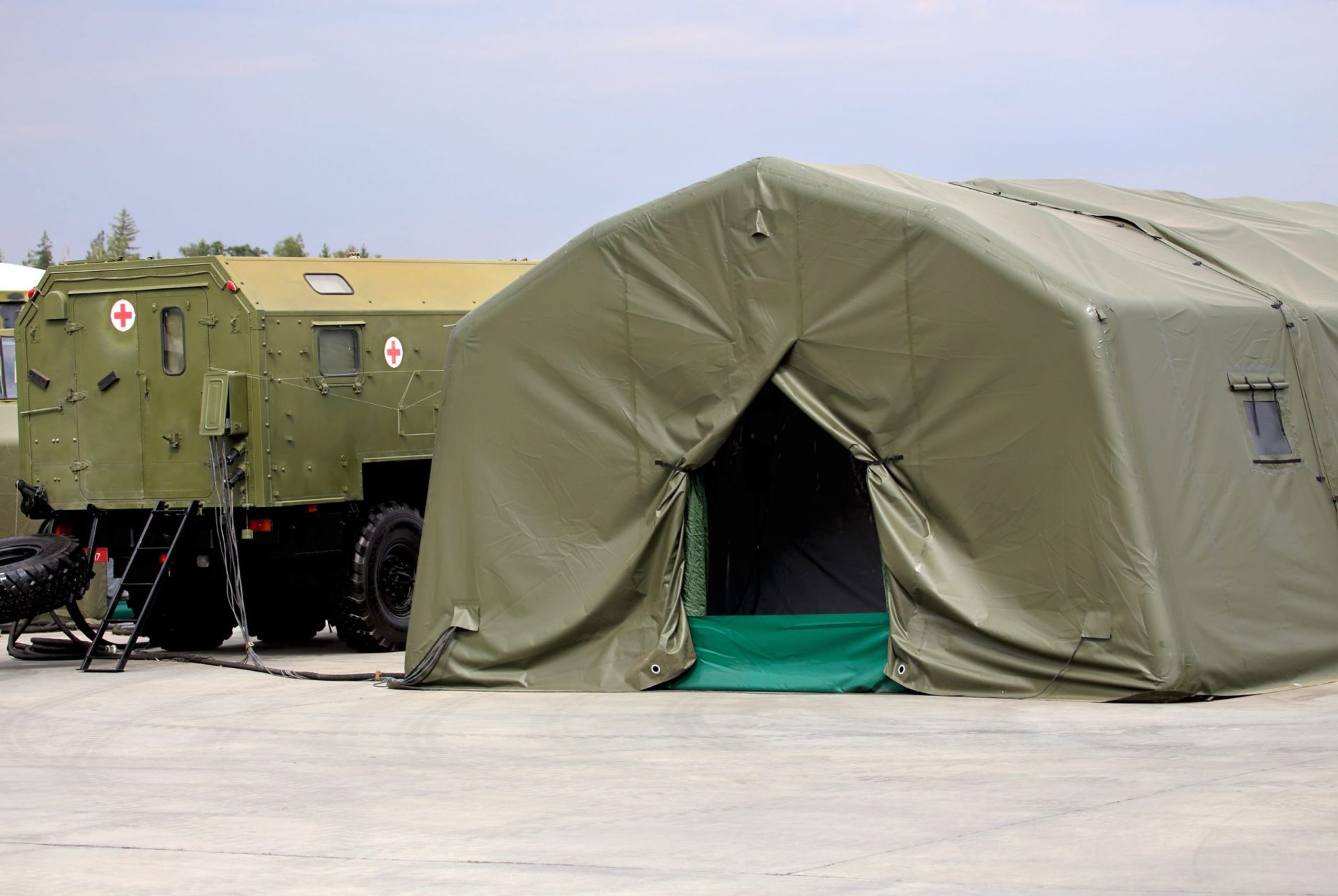As the world becomes increasingly interconnected and complex, the potential for large-scale emergencies—natural disasters, pandemics, or conflicts—escalates, with it, the critical need for responsive and flexible healthcare infrastructure. Deployable field hospitals serve as one solution, providing an immediate, effective response in times of crisis. These mobile health units, often characterized by their portability and swift setup times, are designed to bring immediate medical aid to those in need, wherever they may be, under any circumstances.
Field hospitals play a significant role in global health, and their importance cannot be overstated. These rapidly deployable hospitals are crucial in a world where disasters do not discriminate between developed and developing nations. They not only fill gaps in emergency medical care but also provide a lifeline for regions with strained or non-existent healthcare services. Whether in a dense urban locale recovering from a catastrophic earthquake or a rural area grappling with an infectious disease outbreak, field hospitals stand as a beacon of hope and healing in the face of calamity.
With this article, we aim to delve deep into the subject of deployable field hospitals, such as a military mobile hospital, and their immense significance in emergencies. We will explore their structure, functionality, advantages, and how they have been successfully employed in various scenarios worldwide. Our objective is to shed light on the potential of these extraordinary medical establishments in improving disaster response and, ultimately, saving lives.

What Are Deployable Field Hospitals?
Deployable field hospitals, also known as mobile medical units, are portable, self-contained healthcare facilities that can be quickly set up and dismantled, allowing them to be transported and deployed to any location worldwide. They provide crucial medical services in emergencies where existing healthcare facilities are overwhelmed, damaged, or non-existent. These units may be deployed in response to natural disasters, armed conflicts, pandemics, or any other situation requiring immediate medical attention.
Types of Deployable Field Hospitals
Deployable field hospitals come in various shapes and sizes, tailored to the specific needs of a situation. There are three primary types:
- Inflatable Hospitals: These units consist of inflatable tents equipped with medical facilities. They are light, compact when packed, and can be rapidly deployed anywhere, providing immediate medical infrastructure in crises.
- Container Hospitals: These hospitals are constructed from shipping containers, providing robust and secure medical facilities. Though they may take longer to transport and deploy than inflatable units, they offer more durability and can be used for longer-term healthcare provision.
- Modular Field Hospitals: These are flexible systems composed of interconnecting tents or units. They can be configured to specific requirements, allowing for the creation of a full-service hospital with different departments such as triage, surgery, and intensive care.
Components of Deployable Field Hospitals
Deployable field hospitals typically contain several key components:
- Medical Facilities: This includes examination and treatment areas, operating theaters, intensive care units, and recovery rooms.
- Medical Equipment: Depending on the nature of the emergency, they are equipped with essential medical devices such as diagnostic tools, surgical instruments, ventilators, and more.
- Support Facilities: These comprise areas for patient registration, logistics, staff rest, and storage for medical supplies. In more extensive setups, there may also be a laboratory and pharmacy.
- Utilities: Deployable field hospitals need self-sufficient utilities, including power generation, water purification, heating, cooling, and waste disposal systems.
By providing medical services where they are most needed, deployable field hospitals play a crucial role in saving lives during emergencies. Understanding their design, functionality, and various types is fundamental in appreciating their significance in healthcare.
Why Are Deployable Field Hospitals Important in Emergency Situations?
- Quick Response Time
In emergencies, time is of the essence. Deployable field hospitals are designed for speed, capable of being shipped rapidly and set up in hours. This quick response time allows medical personnel to start treating patients almost immediately, significantly reducing the time between the onset of a crisis and the delivery of medical aid.
- Increased Capacity
Deployable field hospitals help expand existing healthcare systems’ capacity, especially in scenarios where local medical facilities are overwhelmed or incapacitated due to a disaster. By providing additional beds, operating rooms, and care units, these mobile hospitals ensure that more people receive the urgent medical attention they need.
- Flexibility
One of the significant advantages of deployable field hospitals is their flexibility. They can be easily modified to cater to different emergencies, whether required to provide primary care after a natural disaster, serve as an epidemic treatment center during a pandemic, or function as a surgical unit in a conflict zone. This adaptability makes them versatile tools in diverse emergencies.
- Accessibility
Often, emergencies occur in remote locations, or situations arise where patients cannot reach traditional healthcare facilities. Deployable field hospitals overcome this challenge by bringing medical care to the doorstep of those in need. Their portability allows them to be set up in virtually any accessible location, ensuring that no one is left without medical care due to geographical constraints.
- Cost-Effective
Compared to the costs associated with constructing traditional hospital infrastructure, deployable field hospitals are a cost-effective alternative, especially in crises. While they offer comparable medical services, their modular nature significantly reduces expenditure on construction and material costs. Additionally, when not in use, these units can be efficiently stored and maintained until needed again, providing a practical, economical solution for emergency healthcare providers.
Conclusion
Deployable field hospitals stand as a testament to human ingenuity and the unwavering commitment to preserve life in even the most dire circumstances. Their quick response time, flexibility, and cost-effectiveness highlight their critical role in emergency situations. By increasing the capacity of strained healthcare systems, bringing medical care to remote and hard-to-reach places, and providing a lifeline in the face of disasters, deployable field hospitals continue to prove their indispensable worth in the global healthcare landscape.







